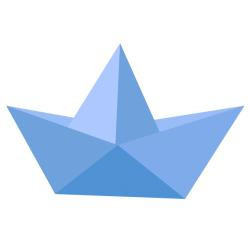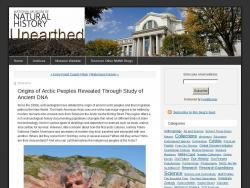Michele Hubert's collections
Migration - Lesson Plans and Information
<p>How was migration affected by the use of canoes/boats?</p>
<p>The earliest human <strong>migrations</strong> and expansions of archaic and modern humans across continents began 2 million years ago with the <strong>migration</strong> out of Africa of Homo erectus. This was followed by the <strong>migrations</strong> of other pre-modern humans including Homo heidelbergensis, the likely ancestor of both modern humans and Neanderthals.<br /></p>
 Michele Hubert
Michele Hubert
6
Force, Work, Motion -- Lesson Plans and Information
<p>How do canoes work? How do they float/move in the water?</p>
<p>An object will float<strong> </strong>if the gravitational (downward) force is less than the buoyancy (upward) force. So, in other words, an object will float if it weighs less than the amount of water it displaces. This explains why a rock will sink while a huge boat will float. The rock is heavy, but it displaces only a little water.<br /></p>
 Michele Hubert
Michele Hubert
5
Food Chain -- Lesson Plans and Information
<p>How does fishing, pollution and human activity affect the energy balance in the ocean?</p>
<p>The oceans are an important resource for much of humanity. In the United States alone, about one in six jobs has something to do with the ocean. Unfortunately, while humans depend on the ocean for many different things, their activities can also have a negative effect on the ocean and its wildlife.
</p>
<h3> OVERFISHING OF SPECIES</h3>
<p>One of the biggest effects humans have on the ocean is through fishing. An increasing demand for protein has led to an increase in large-scale fishing operations, and throughout the 20th century, many countries failed to put safeguards into place to prevent overfishing. As a result, the populations of a number of large fish species have dropped by as much as 90 percent from their preindustrial populations. This depletion has led to disruptions in ocean food chains, removing predators and allowing other populations to grow unchecked. As the populations of targeted fish decline, many operations move down the food chain to other species, and over time this can cause significant alterations to marine ecosystems.
</p>
<h3>POLLUTION AND DUMPING</h3>
<p>Human pollution also has a significant effect on the oceans. In the 1980s, travelers passing through the Pacific Ocean began to notice areas containing a high concentration of plastic trash, apparently collected by the ocean's natural currents into one area. The so-called Pacific Trash Vortex may contain up to 1.9 million pieces of trash per square mile, and a similar patch of garbage exists in the northern Atlantic. In addition, oil spills such as the one resulting from the Deepwater Horizon fire in 2010 can contaminate large stretches of the ocean, wiping out entire populations of fish and other species and affecting the regional ecosystem for decades.
</p>
<h3>CARBON EMISSONS</h3>
<p>Air pollution also affects the oceans. As the carbon dioxide in the atmosphere increases, the ocean absorbs some of the excess. The gas reacts with seawater and reduces its pH, increasing the acidity of the water. Since the industrial revolution, the pH of the ocean has decreased by 0.1 pH, representing a 30 percent increase in the acidity of seawater. This affects the growth of animals and plants in the ocean, weakening coral and shellfish.
</p>
<h3>ORGANIC WASTE</h3>
<p>Organic waste dumped into the oceans can have a devastating effect on ecosystems. Excess nutrients from fertilizers and sewage runoff flow into the ocean via rivers, and this sudden abundance of organic material can disrupt the balance of life in affected areas. Organic pollution can cause <a href="http://sciencing.com/algae-blooms-8266246.html">algae blooms</a>, a rapid increase in certain species of microorganisms that may produce toxins or consume the free oxygen in the region, killing off or driving away other species.
</p>
<p>
</p>
<p><br /></p>
 Michele Hubert
Michele Hubert
10




